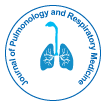Notre groupe organise plus de 3 000 séries de conférences Événements chaque année aux États-Unis, en Europe et en Europe. Asie avec le soutien de 1 000 autres Sociétés scientifiques et publie plus de 700 Open Access Revues qui contiennent plus de 50 000 personnalités éminentes, des scientifiques réputés en tant que membres du comité de rédaction.
Les revues en libre accès gagnent plus de lecteurs et de citations
700 revues et 15 000 000 de lecteurs Chaque revue attire plus de 25 000 lecteurs
Indexé dans
- ICMJE
Liens utiles
Revues en libre accès
Partager cette page
Abstrait
Portuguese Family Drug Education's Respiratory Drug Class: A Delphi Research
Abdullah Al-Shamrani
Background: Respiratory conditions (RD) constitute a significant part of the workload of family croakers. There's no agreement on what family croakers should know in this area but established styles for achieving agreement may help to overcome this.
Objects: The purpose of the study was to gain a public agreement on the needed knowledge and chops in respiratory drug for family drug trainees after vocational training.
Methods: A Delphi study was conducted via e-mail with a different panel of experts. We developed a Learning Curriculum Framework (LCF) with 399 particulars acclimated from the Royal Australasian College of Physicians — Respiratory Medicine Advanced Training Curriculum. The LCF was submitted to the experts in two rounds for agreement. Consensus was considered for particulars that had an agreement of 80 in the groups above 4 on a scale of significance that ranged from 1(not important) to 5(veritably important).
Results: Consensus was attained for 159 particulars (38.8). These included structure and function of the respiratory tract(0.6), presenting problems(21.4), opinion(7.5), interventions and forestalment(11.3), COPDemphysema( 12.6), tumours(3.1), infections(10.7), tuberculosis(5.7), HIV(1.3), thromboembolic complaint(2.5), pleural- pulmonary complaint(3.1), gestation(0.6) and sleep diseases(3.8). Particulars on iatrogenic conditions and respiratory exploration didn't reach agreement.
Conclusions: Consensus on the respiratory drug class may contribute to farther development of the vocational training class in Portugal. This approach may help preceptors in other countries in Europe to develop classes for respiratory drug and other areas of general practice.
Revues par sujet
- Agriculture et Aquaculture
- Biochimie
- Chimie
- Food & Nutrition
- Génétique et biologie moléculaire
- Géologie et sciences de la Terre
- Immunologie et microbiologie
- Ingénierie
- La science des matériaux
- Le physique
- Science générale
- Sciences cliniques
- Sciences environnementales
- Sciences médicales
- Sciences pharmaceutiques
- Sciences sociales et politiques
- Sciences vétérinaires
- Soins infirmiers et soins de santé
Revues cliniques et médicales
- Allaitement
- Anesthésiologie
- Biologie moléculaire
- Cardiologie
- Chirurgie
- Dentisterie
- Dermatologie
- Diabète et endocrinologie
- Gastro-entérologie
- Immunologie
- La génétique
- Maladies infectieuses
- Médecine
- Microbiologie
- Neurologie
- Oncologie
- Ophtalmologie
- Pédiatrie
- Recherche clinique
- Soins de santé
- Toxicologie

 English
English  Spanish
Spanish  Chinese
Chinese  Russian
Russian  German
German  Japanese
Japanese  Portuguese
Portuguese  Hindi
Hindi